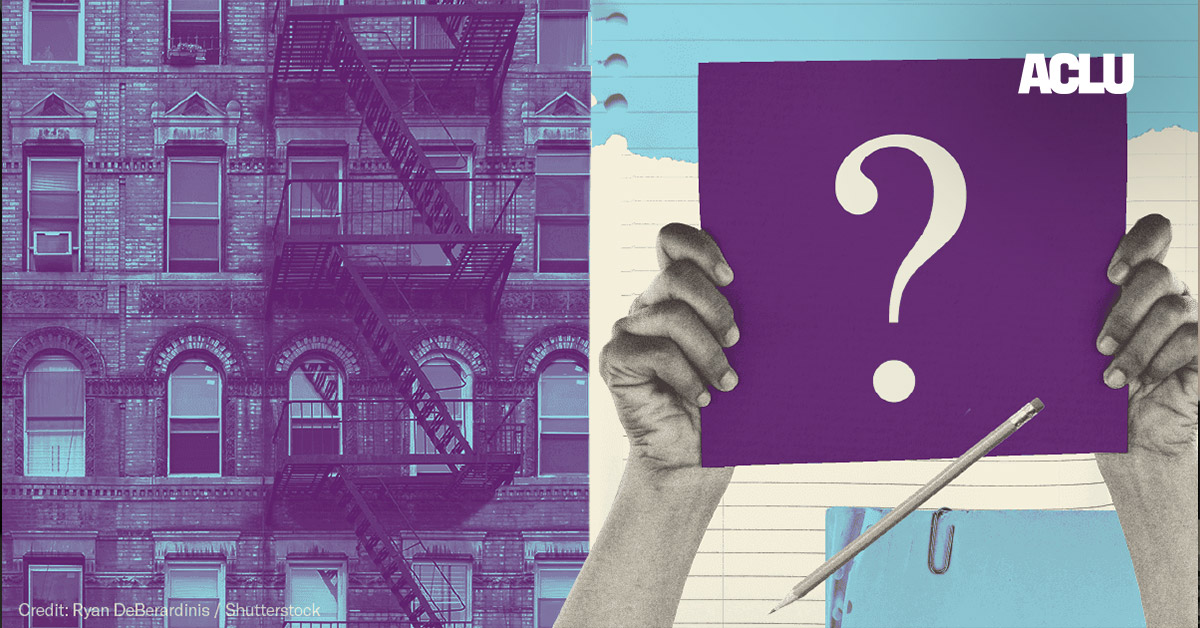The Diversity Immigrant Visa Program provides a once-in-a-lifetime opportunity for immigrants seeking to build a future in the United States. Established in 1990, the program aims to “diversify” immigration to the U.S. by providing opportunities for people from countries with low immigration rates who meet certain criteria, such as education and work experience. Each year, about 11 million people apply, and only 55 thousand people are lucky enough to be randomly selected. Applicants have a 1 percent chance of winning.
While in office, Trump implemented a number of policies that upended the lives of tens of thousands of people who had beaten the odds and won the Diversity Visa lottery. The widely-criticized Muslim Ban is one of those policies, and its effects have been well documented. But Trump also implemented and extended lesser-known policies, known as Presidential Proclamations 10014 and 10052, under the guise of protecting the U.S. labor market after Covid-19 broke out, that dealt a devastating blow to winners of the 2020 and 2021 lottery.
Although President Biden has since revoked Trump’s bans, he has not restarted visa processing for those who were shut out because of it. As a result, tens of thousands of people still remain in limbo. These are the stories of four people who are still waiting for justice.
These interviews have been edited and condensed for clarity.
Mohammed Saeed

Mohammed Saeed
When Mohammad Saeed, a 40-year-old Jordanian father of two who has lived most of his life in the United Arab Emirates, won the Diversity Visa lottery in June, 2020, he was in disbelief.
“I went to my wife, I asked her, can you read this? Are you sure I am seeing this correctly? She said ‘yes’ and from that time on everything changed 180 degrees.”
He and his wife quickly started making plans to move close to relatives in New Jersey. They began looking at school ratings and dreaming of a better education and life for their daughters. Mohammad, who works as a project manager in the HVAC field, even landed a few job interviews.
“I need to make a certain future for my kids. You know, the type of the work I do, and the way the yearly salaries work in the U.S., this amount is almost double. And with my experience, I am very suitable for these jobs.”
But President Trump soon extended what was supposed to be a short-term proclamation suspending almost all immigration to the U.S. under the guise of protecting the labor market during the Covid-19 pandemic. Mohammad tried to maintain hope and focus on completing the necessary requirements, so that he and his family could obtain their visas when the ban expired. But despite his best efforts, he couldn’t even secure an appointment for his interview at the U.S. embassy in Abu Dhabi, due to massive delays.
“We had hope at that time that everything could be better. We were pushing ourselves. But when the end of the fiscal year came,” after which diversity visa lottery winners generally lose their chance to obtain a visa, “without any good news or anything honestly at all, I was devastated, really. Because my wife’s relatives in the U.S. were waiting for us. We had the plan, everything.”
It’s now been nearly three years, and Mohammad and his family remain in limbo. Even though President Biden revoked Trump’s proclamations, he has not ensured those whose lives were upended by it can obtain the visas they were promised. Mohammad, who is part of a class action lawsuit, is living in limbo, constantly checking in with his attorney for legal updates and reading the news, for any signs of hope from the White House.
“Before I go to sleep, I check everything. I wake up very early. I go to sleep around 1:30 at night. I wake up around 5:30 in the morning daily to open the news as soon as I can.”
“Honestly, it’s hell. I’m getting old by the minute — not by year. I’m getting very, very tired.”
Moataz Abdelazim

Moataz Abdelazim
“My friend was sitting right beside me and I told him I won the lottery. He said, ‘You are the luckiest person in the world.’ And I told him, ‘See, this is my confirmation number here.’ And I’ve never felt this feeling before. This was the best feeling I’ve ever had.”
Maotaz Abdelazim was living in Saudi Arabia and working as an accountant when he won the diversity visa lottery in 2019 for the year 2020. Although he had a stable, satisfying career, he didn’t hesitate to put in his notice and travel to Cairo, Egypt, where he was born, for his visa interview. The opportunity to live in the U.S. was a dream he couldn’t pass up.
“I was dreaming of joining one of the big four auditing firms in the U.S. … and I was deciding whether to live in Houston or Nashville.”
But while 34-year-old Moataz was waiting for his visa interview date, Trump issued his April 2020 proclamation. Unlike winners with earlier lotto numbers, who successfully completed their interviews and received their visas prior to the ban, Maotaz suddenly found himself at an impasse.
“I thought they were luckier than us, that this is not justice. We all won the same year, so why weren’t we treated the same way?”
To this day, Maotaz remains trapped in Cairo, a city he only planned to return to temporarily, unsure of what the future holds.
“I lost my job in the Gulf. If I didn’t win, I would still be there. I would have never submitted my resignation. I was thinking of opening my own project here in Egypt, but I’m thinking of this 5 percent chance of still coming to the U.S. So, what if I invest my money here and I get to go to the U.S.? You just aren’t stable. You are still thinking about going there.”
For years, he’s followed the journey of the people who won the lottery the same years as him and were granted visas before the proclamation through a WhatsApp group chat, where they share photos of their lives in the U.S.
“I would be sending my photos to my family if I were them. But we are still fighting, we are still holding the dream. It feels bad, but I am happy for them.”
If he could speak to President Biden, his message is clear.
“I would like to say to him only one word: Justice. We aren’t going to take over American jobs like Mr. Trump said. We would be Americans. This would be our homeland. Our dream was stolen from us.”
Ekaterina Karslidi

Ekaterina Karslidi
For as long as she can remember, 33-year-old Ekaterina dreamed of leaving Russia and moving to the U.S., where professional journalists and movie critics like her can write freely, without government constraints or fear of reprisal. When she won the diversity visa lottery in 2019 after applying for five years, she was overjoyed.
“I was beyond happy. It was a dream come true. And all my friends and family were all happy too, because they knew how much I wanted to pursue it and move to the U.S.”
Then the Covid-19 pandemic hit, and President Trump suspended immigration to the U.S., upending her dreams. She tried everything she could to move her visa process forward, in hopes that as soon as normal processing resumed, she’d be ready to move.
“I was doing everything I could to get an interview. My documents were checked and I just needed to get an interview. But the consulate in Russia shut down. The process became almost impossible to finish. Not almost — it was impossible.”
With her dreams on hold, Ekaterina left Russia to attend a series of film festivals in Europe, and then make her way to the U.S. for the New York Film festival. While traveling, she learned that Russia had invaded Ukraine. She knew at that point she could not go back.
“I am actively against the war that Russia started with Ukraine, and I’m actively speaking about it, but I don’t feel safe to return to Russia … In Russia you can sit silently or be ready to be persecuted.”
Ekaterina is temporarily staying in New York City with friends on a tourist visa, but her time in the United States is limited. She will soon have to travel somewhere else to avoid overstaying her visa, and returning to Russia.
“It’s really hard, traveling with a suitcase for a year, not having your own place to live. You don’t know what to expect for the next month. Right now I’m trying to stay in one place as long as I can just to feel calm. I also think every time I talk about myself and how stressed I am, I’m always thinking about the people in Ukraine who are suffering from my country.”
She hopes the next time she returns to New York, she’ll finally be able to plant roots in the city she loves.
“My freedom is my most precious thing. And every time I come to New York, I feel free and I love this feeling. And I really wanted to stay here … I see building something new here. In Russia, anything you build can be vanished the next day.
Ahmad
Ahmad* hoped he’d be in the United States embarking on a new life with his family by 2021, after winning the diversity visa lottery in 2020. But he found himself trapped in Afghanistan after Trump issued and extended a ban on immigration.
Ahmad’s situation went from bad to worse when the Taliban waged an offensive to regain power in August. After seizing a string of cities, the Taliban eventually took control over the capital city of Kabul, before he could make it through the visa interview process.
Ahmad, who once worked as an attorney for the Islamic Republic of Afghanistan, participated in demonstrations against the Taliban. Now, he lives in fear that he and his family could face retaliation and punishment if his participation is discovered.
“We had really good media coverage. So my biggest fear is that if the videos of my demonstration became accessible to the Taliban regime and its members, that they would automatically start chasing us, and find us.”
He also worries about raising his three children in a country with severe restrictions on fundamental rights.
“Unfortunately, girls and women are not allowed to go to the schools, and I feel that the future is vague. I live in darkness.”
Over the last two years, as he’s struggled to hold onto hope, Ahmad says his hair has turned white, and he’s begun to experience difficulty with his eyesight. Still, he refuses to give up.
“I used to work as an attorney for the government. My only hope is that soon I will arrive in the U.S. and settle there. I’ll be able to start my job doing something to help other human beings. And I hope that I will be able to raise my children in a way that they too can help humanity.”
To president Biden, he says, “Please don’t forget us. Don’t forget us.”
*NOTE: To protect his identity, an alias has been used.
Date
Wednesday, May 31, 2023 - 9:30amFeatured image






